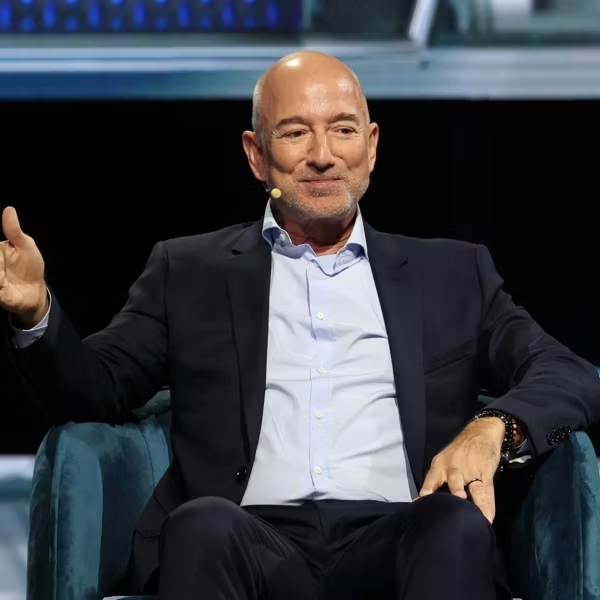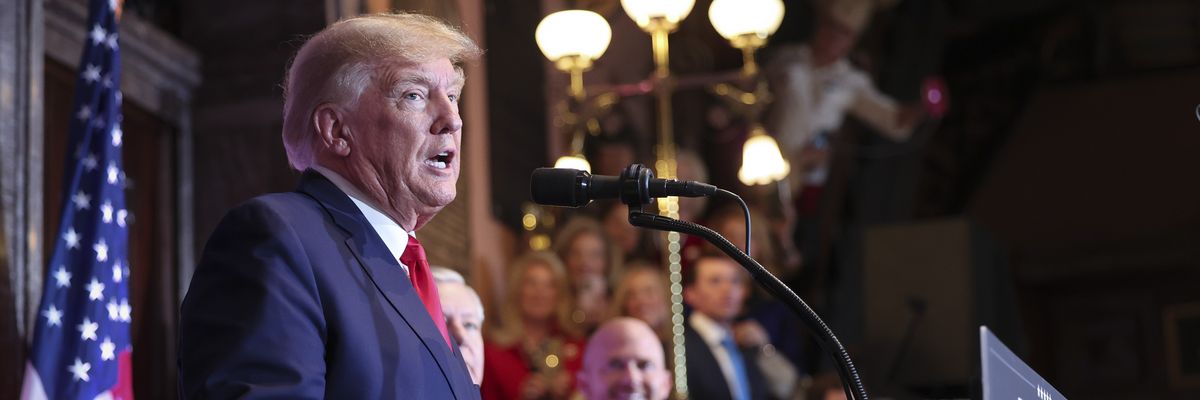Large, profitable U.S. corporations have seen their effective tax rates fall by more than 40% since Republicans and their presumptive 2024 presidential nominee, Donald Trump, rammed through an unpopular law that they want to preserve and extend.
According to a new report published Thursday by the Institute on Taxation and Economic Policy (ITEP), the tax rates paid by big and consistently profitable corporations dropped from 22% to 12.8% after the enactment of Trump's tax law, which slashed the statutory corporate tax rate from 35% to 21%.
"In 2017, Congress and President Trump had a chance to reform our corporate tax system," Matthew Gardner, a senior fellow at ITEP and co-author of the new report. "Instead, they just gutted it."
ITEP's analysis examines 296 Fortune 500 and S&P 500 companies that were consistently profitable between 2013 and 2021. Even as the companies' combined profits surged by 44%, they "paid $240 billion less in taxes from 2018 to 2021 than they would have paid under the effective rates they paid before the Trump law," according to ITEP.
Verizon, for instance, went from paying an effective tax rate of 21% in the several years preceding the Trump tax cuts to paying 8% in the three years following the law's enactment. Walmart's effective rate fell from 31% to 17%, Meta's fell from 28% to 18%, and Lockheed Martin's dropped from 33% to 15%.
"The signature legislative accomplishment of the Trump administration was the 2017 corporate tax cut," said ITEP senior fellow Michael Ettlinger, a report co-author. "This study shows that the largest of companies, from Verizon to Walmart, have been the biggest beneficiaries."

Critics of the Trump-GOP tax law have from the beginning derided it as a "scam," denouncing Republicans' false promise that the cuts would deliver significant benefits to working- and middle-class families. In reality, the measure's benefits have flowed disproportionately to wealthy individuals and large corporations.
During a fundraiser last month at the home of billionaire hedge fund manager John Paulson, Trump pledged to his donors that he would work to keep their taxes low by extending the 2017 law if he's reelected. Extending provisions of the tax law that are set to expire at the end of next year would overwhelmingly benefit rich households, according to the Tax Policy Center.
ITEP noted Thursday that in the wake of the tax law's passage, the number of major U.S. corporations paying an effective tax rate of less than 10% rose from 56 to 95, and the number paying less than 5% rose from 41 to 53.
"The primary reasons these large corporations have seen tax cuts of this magnitude are clear," the new report states. "Most importantly, the 2017 tax law drastically cut the statutory corporate tax rate from 35 to 21%. It also expanded tax breaks for corporate expenses characterized as capital investment and expanded other ways to minimize U.S. tax liability. The law also reduced some tax avoidance mechanisms but, taken as a whole, it increased these companies' ability to take advantage of tax breaks."





